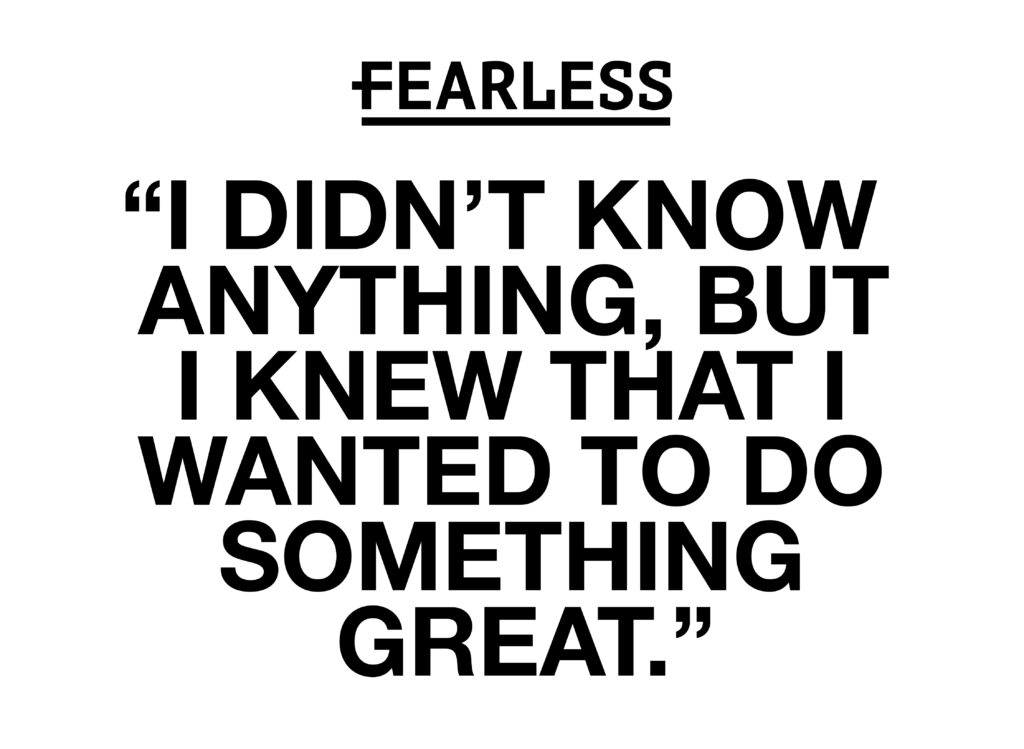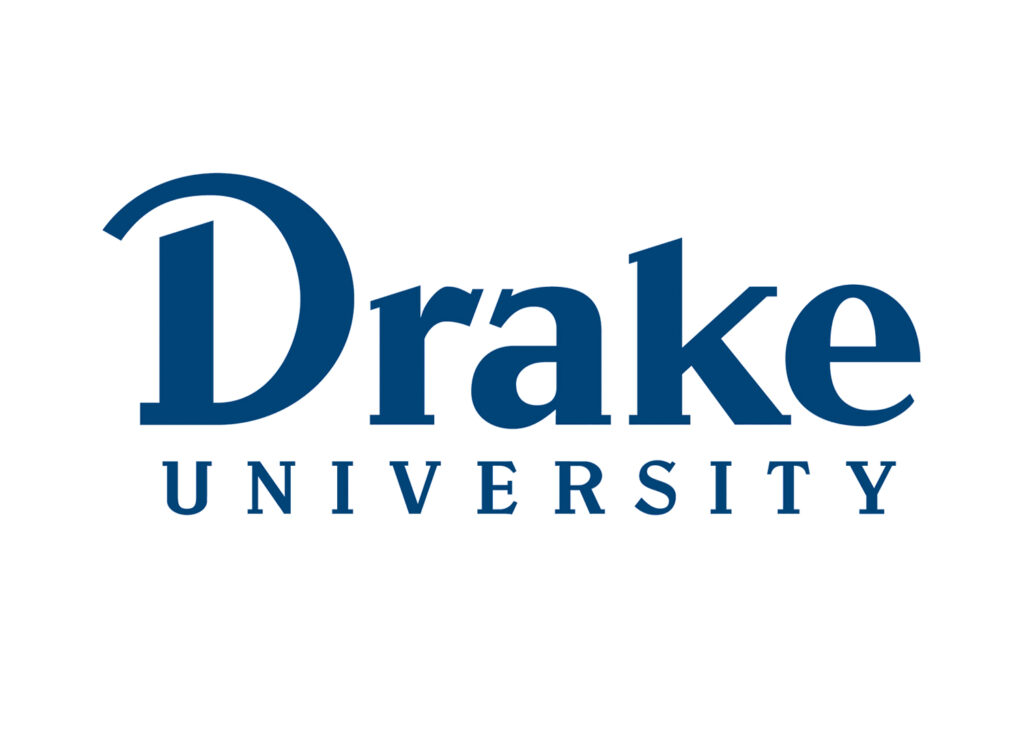High school meets the real world
Program puts high-school students into Local professional roles

Barbara Dietrich Boose Oct 10, 2019 | 9:06 pm
8 min read time
1,803 wordsBusiness Record Insider, Education
Abbi Janes was emphatically not looking forward to “being stuck in the high school again” for her senior year. Then a counselor told her about a program that would get her out of the building to work on projects for local organizations. In the program’s course on web-based technologies, she pitched website ideas to staff at John Deere and created an entire site for Train to Inspire, a nonprofit organization that helps people with disabilities participate in physical and social activities. In another course on business startups, she took over her family’s “side” business, the Sales Garage, which develops websites for organizations.
Janes interned at West Des Moines-based Strategic Elements, handling social media for the communications/public relations company’s clients.
“I’ve learned that I was truly passionate about the design side and helping small businesses,” said the 2019 Waukee High School graduate. “I gained professional skills and learned how to be an adult. Before, I had no idea how to give a professional handshake or write a professional email message. Now I do it all the time.”
Exposing students to career opportunities through business partners while developing their skills is the central goal of Waukee Aspiring Professional Experience, or Waukee APEX. Now in its sixth year, the program offers textbook-free classes – dubbed “teams” – to juniors and seniors in Waukee, Johnston, Adel DeSoto Minburn, Van Meter, Norwalk, Panorama and Dallas Center-Grimes high schools. They allow students to explore their interests in real-world settings in five economic sectors: finance and insurance; business, technology and communications; engineering; human services; and bioscience and value-added agriculture. The courses are taught by teachers for half the day; then students – referred to as “associates” – go to the business sites for work-based learning opportunities and assigned projects. Most of the courses provide college credit.
By the numbers
Since Waukee APEX offered its first four courses in the 2014-2015 school year, it’s gained 550 active business partners, resulted in 16 business startups and filled 1,560 course seats through 2018. Students in the program completed 1,278 projects through fall 2018 and earned 6,252 college credits through spring 2019. In 2016, the Iowa Governor’s STEM (Science, Technology, Engineering and Mathematics) Advisory Council named Waukee APEX one of 10 new STEM BEST (Businesses Engaging Students and Teachers) Partners in Iowa.
The program hasn’t rested on those laurels. In January 2017, it moved into the $20 million, 63,000 square-foot Waukee Innovation and Learning Center (WILC) that features a central working space surrounded on two floors by glass-walled alcoves and conference rooms. Students now attend the “school” part of their APEX courses here instead of at the high school, which is visible from the center’s enormous western windows. APEX business partners have access to the space, as do community members. Designed by CannonDesign and INVISION Architecture of Waukee, WILC was the 2019 winner of a national Learn by Design competition, presented by VS America, a national provider of textbooks, classroom equipment and other school supplies. Visitors have included Ivanka Trump and Apple CEO Tim Cook.
“I got to have a five-minute conversation with him about everything I worked on in the program,” said Maddie Darveau, an APEX alumna who graduated with a marketing degree from Iowa State last May, a full year early, thanks to the college credits she earned in her APEX courses. This summer she was hired as a marketing specialist at industrial equipment supplier Ramco Innovations in West Des Moines and a corporate resource for the company’s second business strand, Maple Ventures. “Prior to APEX, that’s something I never would have been able to do, to have the confidence to speak to someone of that stature. At the end of the conversation, I handed him my business card.”
The people behind Waukee APEX emphasize it isn’t a trade school or vocational program. “It isn’t for students looking for an internship or work hours,” said Peg Armstrong-Gustafson, founder and president of Amson Technology LC. She serves as the program’s business development manager, recruiting organizations that are a good fit. “This is a truly unique program that exposes young people in a guided way to projects in which they can gain knowledge and skills, find a purpose and bring value to a company. There is unbelievable talent in our young people. They just don’t know it. This program gives them the opportunity to soar.”
Armstrong-Gustafson got involved in the early days of Waukee APEX at the invitation of David Wilkerson, then superintendent of the Waukee Community School District. “He said, ‘Peg, I’ve got a job for you.’ He had a vision, and I had a Rolodex.”
Wilkerson formed a team of teachers, students, parents and local business leaders to look at other programs around the country that bring school to work, and vice versa. They also identified the sectors for the courses that would benefit the local economy. Michelle Hill, then a Waukee High School computer science teacher and now Waukee APEX program director, served on the team.
“We wanted to think how our program could be a workforce development tool that serves the community as well as students,” she said. “All the stars aligned with our school administrators, instructors and community partners. And our students get it. Students who are checked out because they can’t see classroom connections to future careers are really engaged here.
“When you find your passion and purpose and know someone is counting on you, it changes everything,” Hill adds.
A distinctive aspect of Waukee APEX is that no minimum grade point average or class rank is required. Students must be willing to get out of their comfort zones, which involves not only working on projects assigned by the businesses but also honing professional behaviors such as making eye contact, communicating with clients via phone and email and following up on meetings.
“One of our teams had a project with a nonprofit organization in Pennsylvania. The first time they had to do a conference call, it was something,” said Scott Palmer, who teaches an APEX course on web-based technologies. “They never met the clients, but they got two websites up and running for them.”
Being accountable on projects, versus passively sitting in a classroom, challenges students, too – in a good way.
A sense of freedom
“We had a lot of freedom in the class, which was something very new to all of us,” said Zach Walberg, a 2018 Waukee High School graduate who took Waukee APEX’s engineering technology and robotics course. Now an aerospace engineering major at Iowa State University, he and his team in the APEX course were asked to design a robot for Accumold, an Ankeny manufacturer of micro-sized components used in electronics, medical technology, the automotive industry and others. They devised a two-foot-tall robot that could arrange numbered ping pong balls in the correct order in a pyramid structure.
“We took it to the state fair, on the main concourse in front of the Grandstand. People absolutely loved it,” said Walberg, who landed an internship this past summer at Accumold thanks to the APEX class.
Waukee teachers who instruct APEX courses also must use teaching styles different from those in a traditional classroom. “Students get to explore their own interests versus fulfilling curriculum,” said Kathleen Sender, who teaches an APEX course on exercise and sports science, including emerging in-demand careers such as corporate wellness, personal training and dietetics. “Working with 18 students, I’m teaching 18 different courses because the program is so individualized. I thrive on the variety and love watching the students learn first-hand.”
The teachers learn as well. Chemistry teacher Holly Showalter taught an APEX course on health sciences and medicine and now leads a relatively new one on medical and bioscience research. Students in the latter class have studied the genetics of zebrafish embryos with Iowa State, worked on a seed germination project at Kemin Industries and crunched data for a Des Moines University professor conducting bone research.
“The curriculum is very nimble. I’ve been lucky to work with organizations that are willing to take chances with my students, and I’m learning along the way,” Showalter said. “The best days and weeks, it doesn’t feel like school at all.”
Waukee APEX business partners reap benefits from the program beyond simply doing a good deed. Kidder Advisers Inc., a West Des Moines-based investment/consulting firm that helps businesses, organizations and their employees navigate retirement plan options, had APEX students develop an online analytical tool to enable clients to compare plans and costs. In another project, students surveyed 900 Kidder clients for a rebranding effort, done with the help of ad agency Flynn Wright, and then presented their findings to members of the company’s senior leadership team.
“I was impressed by their professionalism. They did a really good job,” said Ray Hansen, president of the company. He acknowledges another potential benefit of Waukee APEX: “Recruiting talent going forward is just getting more difficult. Establishing relationships with these sharp kids is important to us. We need to provide them with opportunities.”
Grace Swanson, vice president of human capital at Accumold, agrees. “The type of collaborative learning that takes place in Waukee APEX keeps Accumold young and builds our future workforce,” she said. “The age of our machinists ranges from 20 to 76. APEX helps keep our tool room forever young, and the synergy pumps up their energy. Our engineers get to answer students’ questions on topics they may have learned a long time ago.”
Des Moines University (DMU), an early Waukee APEX business partner, gave the program space on its campus for two years, before WILC was completed, for the classroom portion of its health sciences and medicine course. “I got a little nervous about that, because those were my early years, too,” said DMU President Angela Walker Franklin, who took office in 2011. “Would people be upset that we gave the program dedicated space for two years for free? But that wasn’t the case.”
At a time when some APEX alumni are finishing their undergraduate degrees, DMU will waive those individuals’ application fee to the university’s eight graduate medical/health sciences programs. “We thought that would be one way to show our connection to the program and the value we place on its students,” Franklin said. “The program represents what we should be thinking about in innovation in education.”
Waukee teacher Scott Palmer notes that today’s high school students will have career opportunities that “don’t even exist now.” That’s why it’s important students gain skills that transcend course subject matter.
“I want the students to be curious, to know how to learn – a lot of it is about self-development and awareness,” he said. “It’s called Aspiring Professional Experience for a reason. Even if a project goes south, students get the experience and will learn from it. This is what education should be.”










